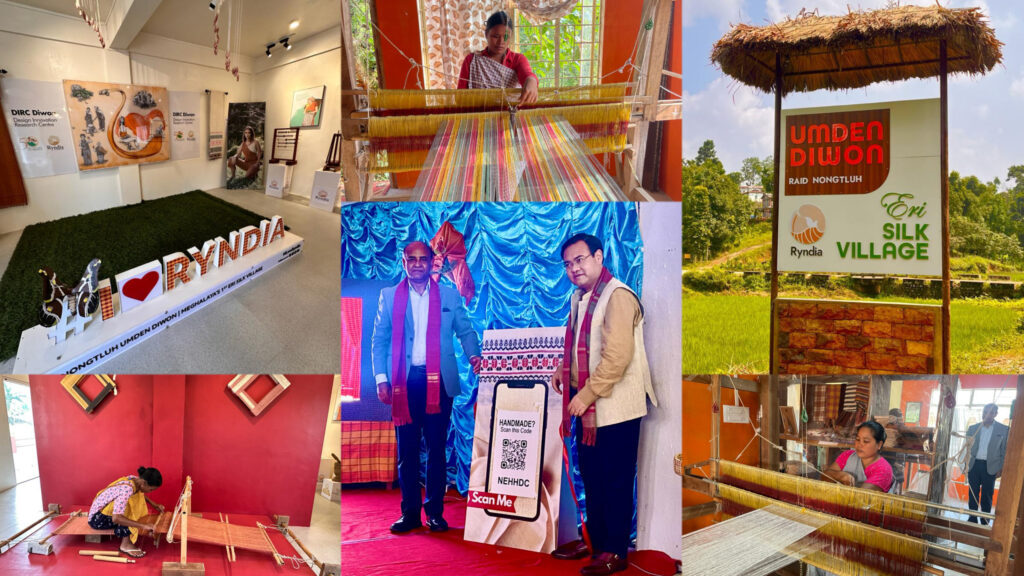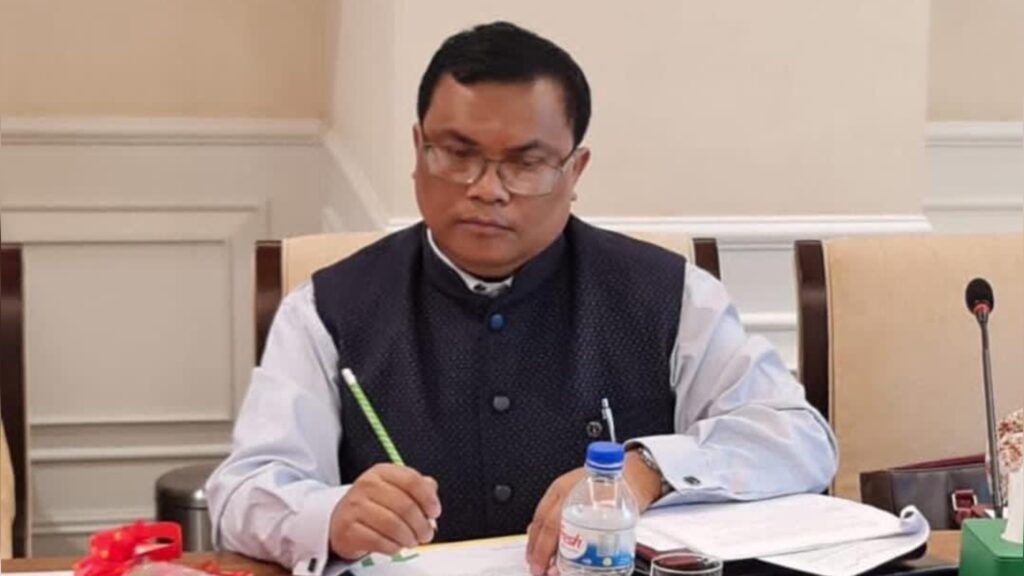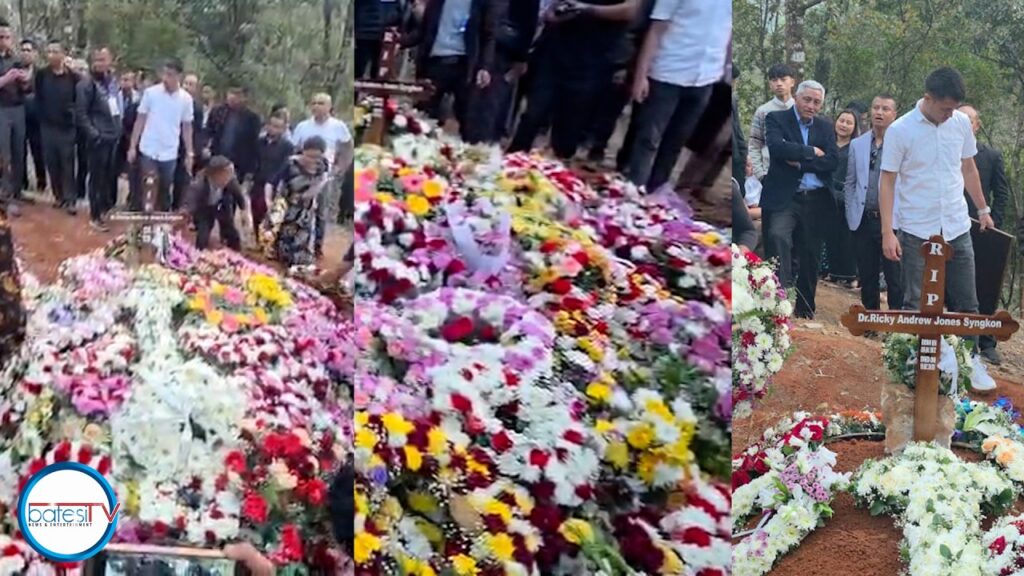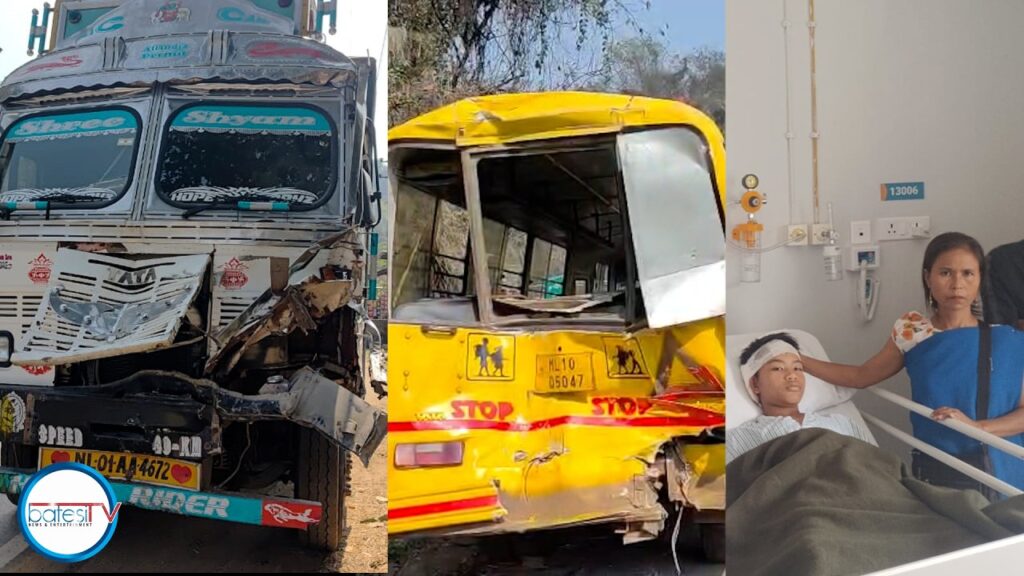Ribhoi, October 14 : The Department of Textiles, Government of Meghalaya, in collaboration with the North East Handloom & Handicraft Development Corporation (NEHHDC), launched a pilot project on “Digitalization of Handloom” products at the Umden – Diwon Eri Silk Village, Ri-Bhoi District, on October 13, 2023.
The project aims to enhance the authenticity and traceability of handloom products from Meghalaya. QR codes will now be woven into fabric to carry information about the product, such as the type of yarn used, where and how it was woven, and the weaver’s details. This traceability will help to authenticate the product and protect consumers from fraud.
The project is also expected to benefit weavers and designers, as they will be able to charge a higher premium for their products. The technology will also amplify the reputation of handloom products from Meghalaya.
The project was launched in the presence of F. R. Kharkongor, IAS, Commissioner & Secretary, Textiles, R. K. Singh, M.D of NEHHDC, representatives of prominent local Eri production houses from the Silk Village and other parts of Ri-Bhoi District, Weaver Associations, Voluntary Organization (VO), officers of Textiles Department, local village heads and the NEHHDC team.
In his remarks, F. R. Kharkongor, IAS Commissioner & Secretary underscored the urgent need and importance of blending technology and tradition, right from Loom to Home and from Thread to Trend. He mentioned that recently, he had received messages from Delhi, that there were some non-local entrepreneurs who were fraudulently marketing imitation non handmade and non-organic Meghalaya Eri (Ryndia) peace silk in Delhi and charging high rates ranging from 19,500 to 24,000/- rates they charged & claimed on the basis that they were selling Meghalaya’s famous ethically sourced, organically produced naturally dyed & gender driven Ryndia stoles at a very steep rate.
He highlighted that with the introduction of this Artificial Intelligence (AI) driven technology, QR Codes will now be woven into fabric to carry information about the authenticity of the unique handloom products of the state in general and the Eri Silk Village in particular, which will authenticate this special product. He welcomed the prompt collaboration of the NEHHDC as a technological partner in rolling out this project through the IOT (Internet of Things) device in local handlooms that will generate QR Codes, which will contribute towards facilitating efficient traceability, and empower customers with the knowledge of the product origin. This traceability will contribute towards authenticity as it will capture the product’s journey right from Farm to Fibre, Fibre to Fabric and Fabric to Fashion. Simultaneously, the weavers and the local designers also stand to benefit through the digital traceability enabled by Technology, as they would be in a position to charge a higher premium for their artistically designed hand-woven products, which are known the world over as being natural, eco-friendly and gender driven. The technology will also amplify the reputation of handloom products originating from the Silk village in particular & the state in general.
RK Singh M.D, NEHHDC in his remarks also actively welcomed the technology driven collaboration with the Department of Textiles and highlighted that they had an ambitious target of covering more than 10,000 looms across the region.
He also stated that once a buyer scans the QR Code, he will get to know about the origin of the product, type of yarn along with a small video, the buyer can see how the product was woven and where it was woven. This traceability feature while also authenticating the inherent unique and superior quality of Meghalaya’s handloom product will provide wider recognition of the skill and dexterity of its nimble women weavers. The M.D also made a mention that only recently the Prime Minister Narendra Modi, interacted with a Meghalaya weaver at the NEvolution event and was greatly impressed with the technology and its technological benefit to the weaving community.
He further indicated that the NEHHDC with this launch and in collaboration with the Department of Textiles will further adopt another 500 weavers in Meghalaya with a focus on the Silk.
Village through its project – “Market Development Through Digitalization, Authentication and Traceability implementation in the Handloom Sector” which will further enhance the reputation of Ryndia across the region and the country and even at international levels. He noted that the Silk village has all the ingredients of a potential “niche handloom export hub”.
Other speakers included the P .Tmung , President of the Ryndia Growers Association, I Rymbai Eri Weaves entrepreneur, who is a beneficiary of this technology, Iba Mallai, Proprietor of KINIHO & prominent local production house from the Eri Silk Village. This was followed by a detailed technical presentation cum demonstration and awareness of the pioneering digital.








